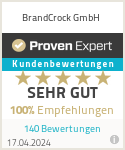Test Automation
TEST AUTOMATION
The types and numbers of tests, System Under Test (SUT), Cost cutting factors, Test-tool and environment, Human and organizational topics

Test Automation
There are two terms, necessary to understand for a clear idea of Test Automation.
Continuous delivery(CD or CDE)
Continuous Testing
Once automated tests have been developed, they can be run quickly and repeatedly thus becoming cost-effective. They are especially helpful in testing of software products that have a long maintenance life.
There are many approaches to test automation. Some points to be noted are:
Test automation tools can be expensive but it can be made cost-effective in the long term, especially when used repeatedly. A good candidate is that of regression testing when an enhancement is made in the application.
Test automation reduces the effort associated with manual testing. Manual effort is needed to develop and maintain automated checks, as well as reviewing test results.
What to automate, when to automate, or even whether one really needs automation are crucial decisions which the testing (or development) team must make.
The types and numbers of tests.
System Under Test (SUT).
Cost cutting factors.
Test-tool and environment.
Human and organizational topics.
BrandCrock provide the support and assistance for the following Automation Testing types.
Graphical User Interface Testing
APT Driven Testing
Unit Testing
Continuous Testing
What to Test?
- Support distributed execution environment (distributed test bed).
- Distributed application support (distributed SUT).
- Platform and OS independence.
- Data driven capability (Input Data, Output Data).
- Customization Reporting (DB Database Access, Crystal reports.
- Support unattended test runs for integration with build processes and batch runs.
- Email Notifications like bounce messages.
- Extensible & Customization.
- Common Driver.
- Easy debugging and logging.
- Version Control friendly – minimal binary files.
BrandCrock GmbH, Munich is a leading professional team taking Agile and DevOps initiatives which design and engineer the handling of most complex automation problems.
We do end-to-end, dynamic testing which in reality is one process, one test, with unlimited variations.
We excel in automated business process of mining and script automation conversion.
We build highly scalable architecture having support for enterprise-wide process automation.
We are here to satisfy our clients. Call us, the developers of world’s most complex applications.



Our Certification
Our Awards